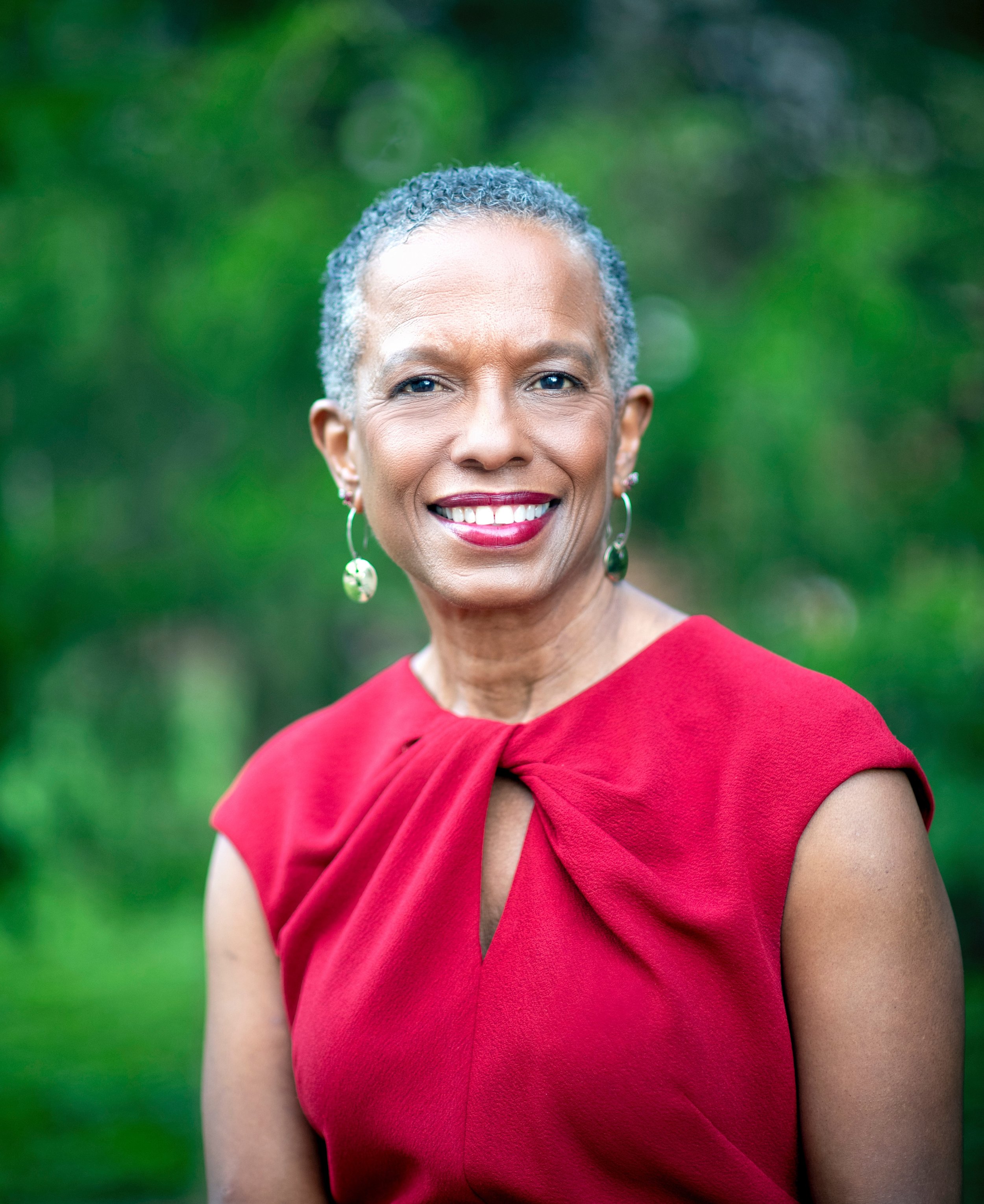The Future of Prosecutorial Discretion
Friday, May 1, 2023 • 1:00pm EST
Angela J. Davis
Distinguished Professor of Law, American University Washington College of Law
Angela J. Davis, Distinguished Professor of Law at American University Washington College of Law, is an expert in criminal law and procedure with a specific focus on prosecutorial power and racism in the criminal justice system. Davis previously served as director of the D.C. Public Defender Service, where she began as a staff attorney representing indigent juveniles and adults. She also served as executive director of the National Rainbow Coalition and is a former law clerk of the Honorable Theodore R. Newman, the former Chief Judge of the D.C. Court of Appeals. Davis is the author of Arbitrary Justice: The Power of the American Prosecutor (Oxford University Press 2007). She is also the editor of Policing the Black Man: Arrest, Prosecution and Imprisonment (Penguin Random House 2017), co-editor of Criminal Law (Sage Publications 2015) (with Professor Katheryn Russell-Brown), Trial Stories (Foundation Press 2007) (with Professor Michael E. Tigar) and the 8th edition of Basic Criminal Procedure (Thomson West 2020) (with Professors Stephen Saltzburg and Daniel Capra). Davis' other scholarly publications include articles in the Michigan, Iowa, Fordham, and Hofstra Law Reviews. Davis won the Pauline Ruyle Moore award for Arbitrary Justice: The Power of the American Prosecutor in 2009 and for her Fordham Law Review article, Prosecution and Race: The Power and Privilege of Discretion in 2000. Davis was awarded a Soros Senior Justice Fellowship in 2003. She won the American University Scholar/Teacher of the Year Award in 2015, the American University Faculty Award for Outstanding Scholarship, Research, Creative Activity, and Other Professional Contributions in 2009 and the American University Faculty Award for Outstanding Teaching in a Full-Time Appointment in 2002. Davis was the 2018 recipient of the D.C. Bar Thurgood Marshall Award and the 2016 recipient of the ABA Raeder-Taslitz Award.
Davis is a member of the American Law Institute and the Council on Criminal Justice. She is a member of the Board of Trustees of the Frederick Douglas Jordan Scholarship Board and the Board of Directors of the Sentencing Project. Davis was a reporter for the ABA Justice Kennedy Commission and a member of the ABA Commission for Effective Criminal Sanctions. Davis also served as a member of the Advisory Board for the Vera Institute of Justice Prosecution and Racial Justice Program. She teaches Criminal Law, Criminal Procedure, Criminal Justice Ethics: Prosecution and Defense, and Criminal Defense: Theory and Practice.
Mark A. Dupree
District Attorney, Wyandotte County, Kansas
Mark is the two-term District Attorney of Wyandotte County and leads an office of over 60 employees and manages a significant budget each fiscal year. D.A. Dupree and his team of employees are implementing strategic and visionary policies to expand the function of the Wyandotte County District Attorney’s Office.
His administration has increased the felony trial conviction rate by 27%. D.A. Dupree has successfully created the first ever “Conviction Integrity Unit” in the state of Kansas, since re-named “Community Integrity Unit” which is responsible for ensuring that convictions obtained previously still hold integrity today and holding law enforcement accountable with the establishment of a hotline for residents to register complaints. His efforts for transforming the traditional manner in which District Attorney’s Offices have operated has been recognized nationally, with articles featured twice in the New York Times and interviewed on the nationally syndicated Roland Martin Show.
Community involvement is the bedrock of the Dupree Administration. It builds community trust, and that trust greatly assists in crime prevention and bringing justice. Mr. Dupree and his administration lead the way in speaking at schools, neighborhood watch meetings, church gatherings, and civic organizations.
George Gascón
District Attorney, Los Angeles County, California
On Dec. 7, 2020, George Gascón was sworn in as the 43rd District Attorney of Los Angeles County, delivering his visionary approach to criminal justice reform to the nation’s largest local prosecutorial office.
On his first day in office, Gascón ended the use of the death penalty as a sentence in Los Angeles County; stopped charging children as adults; eliminated many sentencing enhancements that do not benefit public safety and contribute to mass incarceration; and, in accordance with state law, removed cash bail for misdemeanor or nonserious or nonviolent felony offenses.
For the former police officer, public safety remains his highest priority.
As a leader among progressive prosecutors, Gascón is working to build a national model of criminal justice reform that supports and restores crime victims and while addressing mass incarceration, racism and social systemic inequities.
He was the first District Attorney in the nation to call for an end to cash bail and to launch an automatic record clearing program for marijuana convictions and the only District Attorney in California to support a state law that created a stricter standard for when police can use deadly force.
Gascón rose through the ranks of the Los Angeles Police Department from patrol officer to Assistant Chief of Police. He served as Chief of Police in Mesa, Ariz., before being named San Francisco’s first Latino Chief of Police. He was appointed San Francisco District Attorney in 2011, becoming the nation’s first police chief to become District Attorney.
At age 13, Gascón migrated with his parents to the United States from Cuba. After serving in the U.S. Army, he earned a bachelor’s degree in history from California State University, Long Beach, and later received a law degree from Western State University, College of Law.
He is married to Fabiola Kramsky, a three-time Emmy Award-winning journalist.
Professor of Law, Stanford Law School | Faculty Co-Director, Stanford Criminal Justice Center
David Sklansky
David Alan Sklansky teaches and writes about criminal law, criminal procedure, and evidence. His scholarship has addressed the law, sociology, and political science of policing; the relationship between criminal justice and democracy; the proper exercise and constraint of prosecutorial power; the interpretation and application of the Fourth Amendment; fairness and accuracy in criminal adjudication; the relationship between criminal justice and immigration laws; the history of the hearsay rule and its connection with American slavery; ideas about violence in criminal law; and the role of race, gender, and sexual orientation in law enforcement. He serves as faculty co-director of the Stanford Criminal Justice Center and is a faculty affiliate of Stanford’s Center for Comparative Studies in Race and Ethnicity and a member of the American Law Institute. In 2017 he received the law school’s John Bingham Hurlbut Award for Excellence in Teaching.
Before joining the faculty of Stanford Law School in 2014, Sklansky taught at U.C. Berkeley and UCLA. He won campus-wide teaching awards at both those institutions. Earlier he practiced labor law in Washington D.C. and served as an Assistant United States Attorney in Los Angeles.
Rachel Marshall
Executive Director, Institute for Innovation in Prosecution (moderator)
Rachel Marshall is the Executive Director of the Institute for Innovation in Prosecution.
Rachel previously served as the Director of Communications and Policy Advisor at the San Francisco District Attorney’s Office, following nearly a decade working as a public defender in Alameda County, California. Rachel has extensive expertise in the criminal legal system and efforts to reform it, as well as experience in media, policy, and advocacy.
Rachel graduated from Stanford Law School and Brown University. After law school, she clerked for federal District Court Judge David O. Carter in the Central District of California. Prior to law school, she taught high school history for three years in the Bronx.






